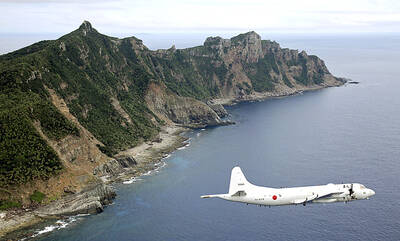Toyota is slashing bonus pay for managers as the Japanese automaker tackles a massive recall in the US and deep losses for the second straight fiscal year.
Toyota Motor Corp said yesterday winter bonus payments for 8,700 managers in Japan would be cut by 20 percent.
Japanese workers at major companies such as Toyota get twice-a-year bonus pay in addition to their monthly salaries that reflects the company’s performance.
Toyota announced in the US on Wednesday a massive recall affecting 4 million vehicles to replace the gas pedals that can get stuck in the floor mats and cause sudden acceleration.
The recall, Toyota’s biggest ever in the US, comes at a time when the maker of the Prius hybrid and Lexus luxury car is trying to reverse losses caused by a global slump and strengthening yen.
Earlier this month, Toyota lowered its loss forecast for the fiscal year through next March to ¥200 billion (US$2.2 billion) from its initial projection for a ¥450 billion.
Toyota’s top executives and board have already given up their bonus pay.
The cuts for managers follow a 60 percent year-on-year decline for their summer bonus this year, and a 10 percent cut for their winter bonus last year.
The bonuses for union workers have also been cut. Their winter bonus will average ¥930,000 this year, down 18 percent from the previous year, Toyota said.
The cost of the US recall is expected to be significant because of the sheer number of vehicles.
The Nikkei, Japan’s biggest business newspaper, said the recall cost, although reaching tens of billions of yen, won’t change Toyota’s annual earnings forecast because the company earmarks money for such measures.

MISINFORMATION: The generated content tends to adopt China’s official stance, such as ‘Taiwan is currently governed by the Chinese central government,’ the NSB said Five China-developed artificial intelligence (AI) language models exhibit cybersecurity risks and content biases, an inspection conducted by the National Security Bureau (NSB) showed. The five AI tools are: DeepSeek, Doubao (豆包), Yiyan (文心一言), Tongyi (通義千問) and Yuanbao (騰訊元寶), the bureau said, advising people to remain vigilant to protect personal data privacy and corporate business secrets. The NSB said it, in accordance with the National Intelligence Services Act (國家情報工作法), has reviewed international cybersecurity reports and intelligence, and coordinated with the Ministry of Justice Investigation Bureau and the National Police Agency’s Criminal Investigation Bureau to conduct an inspection of China-made AI language

BOOST IN CONFIDENCE: The sale sends a clear message of support for Taiwan and dispels rumors that US President Donald Trump ‘sold out’ the nation, an expert said The US government on Thursday announced a possible sale to Taiwan of fighter jet parts, which was estimated to cost about US$330 million, in a move that an expert said “sends a clear message of support for Taiwan” amid fears that Washington might be wavering in its attitude toward Taipei. It was the first announcement of an arms sale to Taiwan since US President Donald Trump returned to the White House earlier this year. The proposed package includes non-standard components, spare and repair parts, consumables and accessories, as well repair and return support for the F-16, C-130 and Indigenous Defense Fighter aircraft,

CHECKING BOUNDARIES: China wants to disrupt solidarity among democracies and test their red lines, but it is instead pushing nations to become more united, an expert said The US Department of State on Friday expressed deep concern over a Chinese public security agency’s investigation into Legislator Puma Shen (沈伯洋) for “secession.” “China’s actions threaten free speech and erode norms that have underpinned the cross-strait ‘status quo’ for decades,” a US Department of State spokesperson said. The Chongqing Municipal Public Security Bureau late last month listed Shen as “wanted” and launched an investigation into alleged “secession-related” criminal activities, including his founding of the Kuma Academy, a civil defense organization that prepares people for an invasion by China. The spokesperson said that the US was “deeply concerned” about the bureau investigating Shen

DISPUTE: A Chinese official prompted a formal protest from Tokyo by saying that ‘the dirty head that sticks itself out must be cut off,’ after Takaichi’s Taiwan remarks Four armed China Coast Guard vessels yesterday morning sailed through disputed waters controlled by Japan, amid a diplomatic spat following Japanese Prime Minister Sanae Takaichi’s comments on Taiwan. The four ships sailed around the Senkaku Islands — known as the Diaoyutai Islands (釣魚台) to Taiwan, and which Taiwan and China also claim — on Saturday before entering Japanese waters yesterday and left, the Japan Coast Guard said. The China Coast Guard said in a statement that it carried out a “rights enforcement patrol” through the waters and that it was a lawful operation. As of the end of last month,